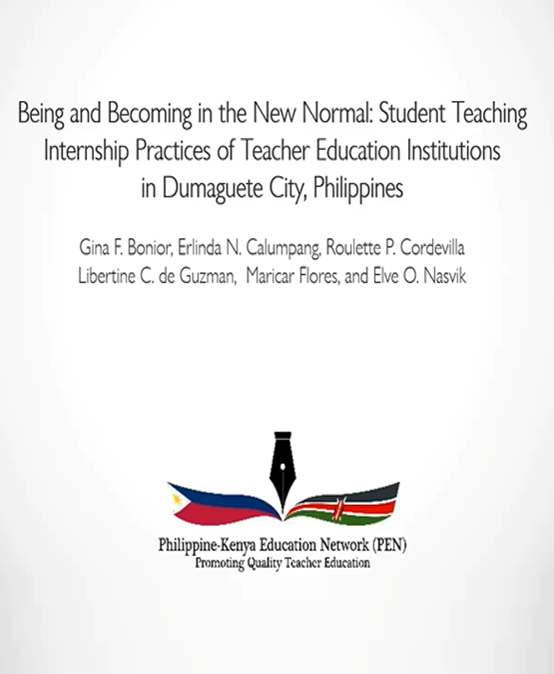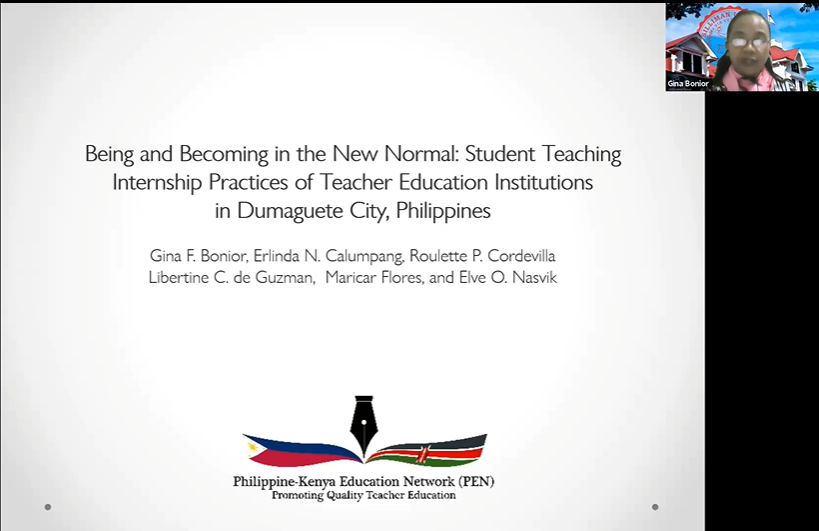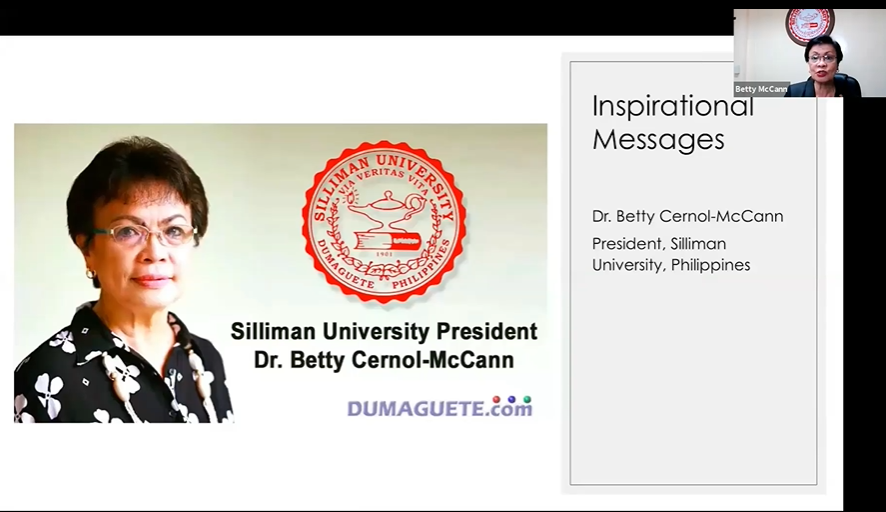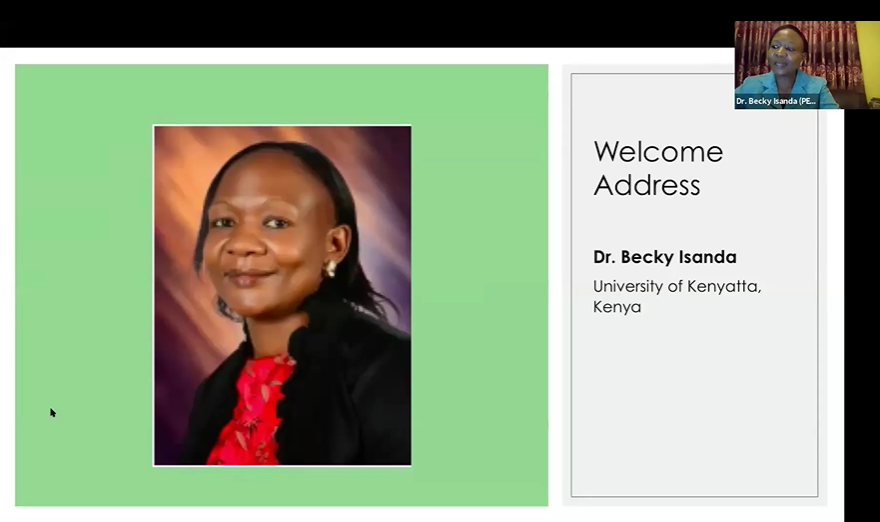
SU co-hosts webinar on teacher education with Kenyan universities
Silliman University (SU), a founding member institution of the Philippine-Kenya Education Network (PEN), co-hosted the first PEN Webinar on Teacher Education to discuss the future of teacher education amid the pandemic, January 25, 2021 via Zoom.
With the theme “Recover and Revitalize Education for COVID-19 Generation,” the webinar was organized in celebration of the UNESCO International Day on Education.
“The forum aims to provide a venue for teacher educators in Kenya and the Philippines to share practices that maintain and sustain the quality of teacher preparation, and teaching and learning in general, amid the challenges of transitioning into the ‘new normal,’” said Dr. Gina F. Bonior, SU College of Education acting dean and one of the presenters during the webinar.
Bonior presented with Dr. Libertine de Guzman, Negros Oriental State University (NORSU) College of Education dean, a paper titled “Being and Becoming in the New Normal: Student Teaching Internship Practices of Teacher Education Institutions in Dumaguete City, Philippines.”

Dr. Gina F. Bonior, Silliman University (SU) College of Education acting dean, presents a research paper she co-authored during the Philippine-Kenya Education Network (PEN) webinar titled “Being and Becoming in the New Normal: Student Teaching Internship Practices of Teacher Education Institutions in Dumaguete City, Philippines.”
Bonior and de Guzman co-authored the paper with Dr. Erlinda N. Calumpang of Foundation University (FU); Dr. Roulette P. Cordevilla of NORSU; Dr. Maricar Flores of Saint Paul University Dumaguete (SPUD); and Dr. Elve O. Nasvik, chair of the SU Teacher Education Department.
Bonior presented the initial findings in the ongoing research of the Teacher Education Institutions (TEIs) in Dumaguete, namely in SU, NORSU, SPUD, and FU.
“(The purpose of the study is) to document the student teaching practices of TEIs in Dumaguete as they transition into the various modalities of teaching and learning to prepare our student teachers for the profession,” said Bonior.
The study, said Bonior, found that the practices of the TEIs in Dumaguete were based on the “New Normal Policies and Guidelines on the Deployment of the Pre-service Teachers for Field Study and Teaching Internship for Academic Year 2020-2021” proposed by Commission on Higher Education and the Department of Education.
However, Bonior said each institution localized and contextualized their practices given available resources.
“In Dumaguete, only Silliman University conducted its Student Teaching Program (using Online Distance Learning) because we have an existing learning management platform that is used in the University, including at the School of Basic Education where our student teachers are deployed,” she added.
Bonior also presented the results of the evaluation of student teachers in SU on their Student Teaching Internship practices.
“Based on the feedback form, the majority of our student teachers find their experience productive and meaningful and rated the first-ever Student Teaching Program at Silliman University as excellent,” she said.
Dr. Betty Cernol McCann, SU president, said in her inspirational message during the webinar that higher education institutions should be compelled by the COVID-19 pandemic to adapt 21st century educational tools.

Dr. Betty Cernol McCann, SU president, gives an inspirational message during the webinar.
McCann described 21st century education as “transformative” learning as it highlights independence, creative thinking, reflection, problem solving, and seeking dialogue among learners.
“(Even if the pandemic ends), there is no going back to a simply in-person, face-to-face, teacher-dependent education. We need to have all the tools that are available to us from the internet world to be used so that we maximize our own educational endeavors,” said McCann.
Bonior said PEN aims to leave “an indelible mark” towards continuing conversations and engagements for excellence in teacher education.
Founded in 2020, PEN currently has nine member institutions: Kenyatta University, Masinde Muliro University of Science & Technology, Moi University, University of Kabianga, and University of Nairobi in Kenya; and FU, NORSU, SPUD, and SU in the Philippines.
Bonior said the current member institutions in the Philippines are all located in Dumaguete City because PEN was initiated by Rolando Villamero Jr., an alumnus of the SU College of Education who was the former Inclusive Education Officer of UNICEF Kenya.
“Mr. Villamero was the conduit that brought together the deans and faculty of the Teacher Education Institutions in Dumaguete and the various universities in Kenya,” said Bonior.
Bonior added that PEN opened up more possible partnerships in research, collaboration, cultural exchanges, and instructional innovation among student organizations of PEN member institutions.

Dr. Becky Isanda, faculty member at University of Kenyatta, welcomed representatives of the PEN member institutions and around 300 participants from different countries.


